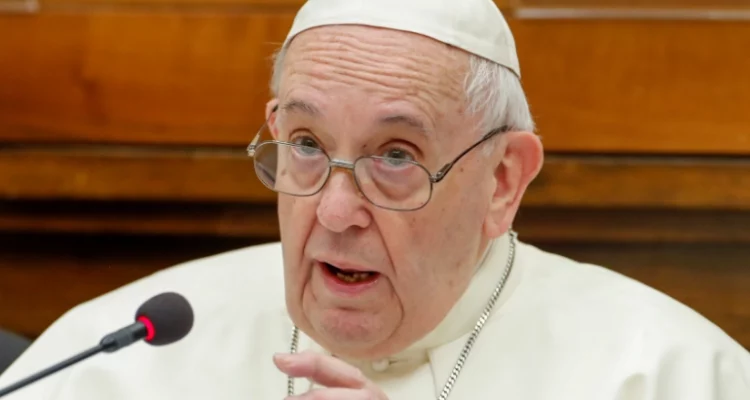
In a landmark ruling approved by Pope Francis, the Roman Catholic Church says priests can now administer blessings to same-sex couples as long as they are not part of regular Church rituals or liturgies.
This is according to a document from the Vatican’s doctrinal office, which effectively reversed a declaration the same body had issued in 2021.
Such blessings would not legitimise irregular situations but be a sign that God welcomes all and says it should in no way be confused with the sacrament of heterosexual marriage
In the statement which has been posted on Vatican News website, Pope Francis says when two people request a blessing, even if their situation as a couple is “irregular,” it will be possible for the ordained minister to consent. However, he says this gesture of pastoral closeness must avoid any elements that remotely resemble a marriage rite.
Pope Francis emphasized that the church can take a more inclusive view of providing blessings, saying that someone seeking God’s love need not to undergo a strict moral analysis ahead of time.
While saying the shepherd’s heart never closes the door, the Roman Catholic Church leader further said the church should not have the power to impart a liturgical blessing on irregular or same-sex couples
“For, those seeking a blessing should not be required to have prior moral perfection. There is no intention to legitimize anything, but rather to open one’s life to God, to ask for his help to live better, and also to invoke the Holy Spirit so that the values of the Gospel may be lived with greater faithfulness,” said Pope Francis.
He continued by saying there are several occasions when people spontaneously ask for a blessing, whether on pilgrimages, at shrines, or even on the street when they meet a priest and added that these blessings “are meant for everyone; no one is to be excluded from them.”
He, however, clarified that to avoid any form of confusion or scandal, when a couple in an irregular situation or same-sex couples ask for a blessing, it “should never be imparted in concurrence with the ceremonies of a civil union, and not even in connection with them. Nor can it be performed with any clothing, gestures, or words that are proper to a wedding.”
It is further reported that while it is not appropriate to establish procedures or rituals for such cases, the ordained minister may join in the prayer of those persons who “although in a union that cannot be compared in any way to a marriage, desire to entrust themselves to the Lord and his mercy, to invoke his help, and to be guided to a greater understanding of his plan of love and of truth.














